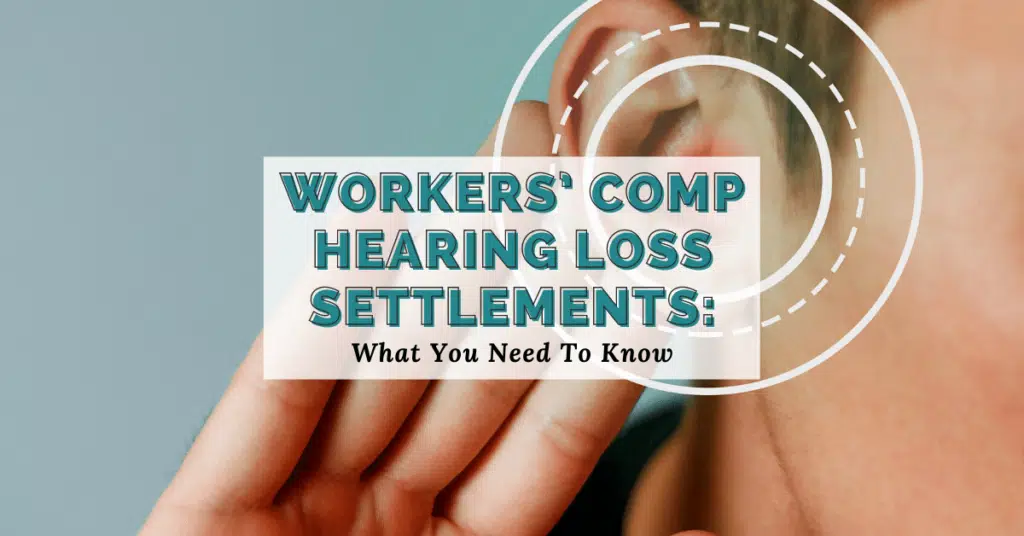Michigan work injury lawyer discusses a workers’ comp hearing loss settlement.

We have represented many clients who suffer from occupational diseases such as noise-induced hearing impairment. It is a common problem for employees working in loud environments such as factories and construction sites. Symptoms of ringing or buzzing in the ears are typically reported. This can interfere with sleep and other activities of daily life. Here is some information about workers’ comp hearing loss settlement.
Michigan workman’s compensation is supposed to pay for all reasonable and necessary medical treatment. This includes hearing aids and other assistive device. There should never be any copayments or deductibles owed under workman’s compensation. It is very important to find a doctor who specializes in hearing impairment and who will support your work injury claim.
Employees who find themselves unable to work should get wage loss benefits. The amount paid is equal to 80% of their after-tax average weekly wage, subject to a state-wide maximum. This average weekly wage calculation includes money for overtime and discontinued fringe benefits.
Insurance companies frequently dispute workers’ comp hearing loss settlement because it can be difficult to say with 100% certainty that problems were caused by employment. Claims for hearing impairment should be made against the last employer who exposed the person to the loud environment. We recommend speaking with an experienced attorney should the insurance company refuse payment.
Average workers’ comp hearing loss settlement
There isn’t a specified average workers’ comp hearing loss settlement amount in Michigan. Statistics published by the Workers’ Disability Compensation Agency show the average settlement for 2020 was $59,235.42. People are shocked to learn this fact because it does not seem like much money. Many of our clients get much more when faced with lifetime medical expenses and disability.
Insurance companies payout amounts based upon their potential exposure. This means looking at what needs to be paid for medical and wage loss benefits. It is critical to have a good idea about medical costs including lifetime doctor visits and hearing aids before discussing a workers’ comp hearing loss settlement. We also recommend having an honest conversation with a doctor about jobs that can and cannot be performed safely.
Many of our clients opt for a lump sum payment. This allows them freedom to seek medical treatment and vocational rehabilitation on their own terms. They don’t have to wait weeks or months for the insurance company to approve new hearing aids. It also guarantees that wage loss benefits will not be stopped suddenly and without warning.
Insurance companies know the value of work injury claims and they do not want to overpay. They use biased doctors and vocational counselors to give questionable opinions about disability. This is done to save money on claims. We recommend calling an experienced lawyer to get an idea about the value of your claim before negotiation begins.
Injured while on the job? Contact our lawyers for a free consultation
To speak with an experienced attorney about your Michigan workers’ comp hearing loss claim and settlement, call us now, or fill out our contact form for a free consultation. There is absolutely no cost or obligation. We’re here for you.
Our attorneys have been exclusively helping injured workers in Michigan for more than 35 years. Our attorneys can help you better understand Michigan workers comp laws and what happens after someone has been hurt on the job. To see what our own clients have to say about the caring, compassion, and communication they received from us, you can read in their own words about their experience here on our testimonials page from clients we have helped.
Michigan Workers Comp Lawyers never charges a fee to evaluate a potential case. Our law firm has represented injured and disabled workers exclusively for more than 35 years. Call (844) 316-8033 for a free consultation today.
Related information:
Workers’ Comp Settlement For Tinnitus: What You Need To Know

